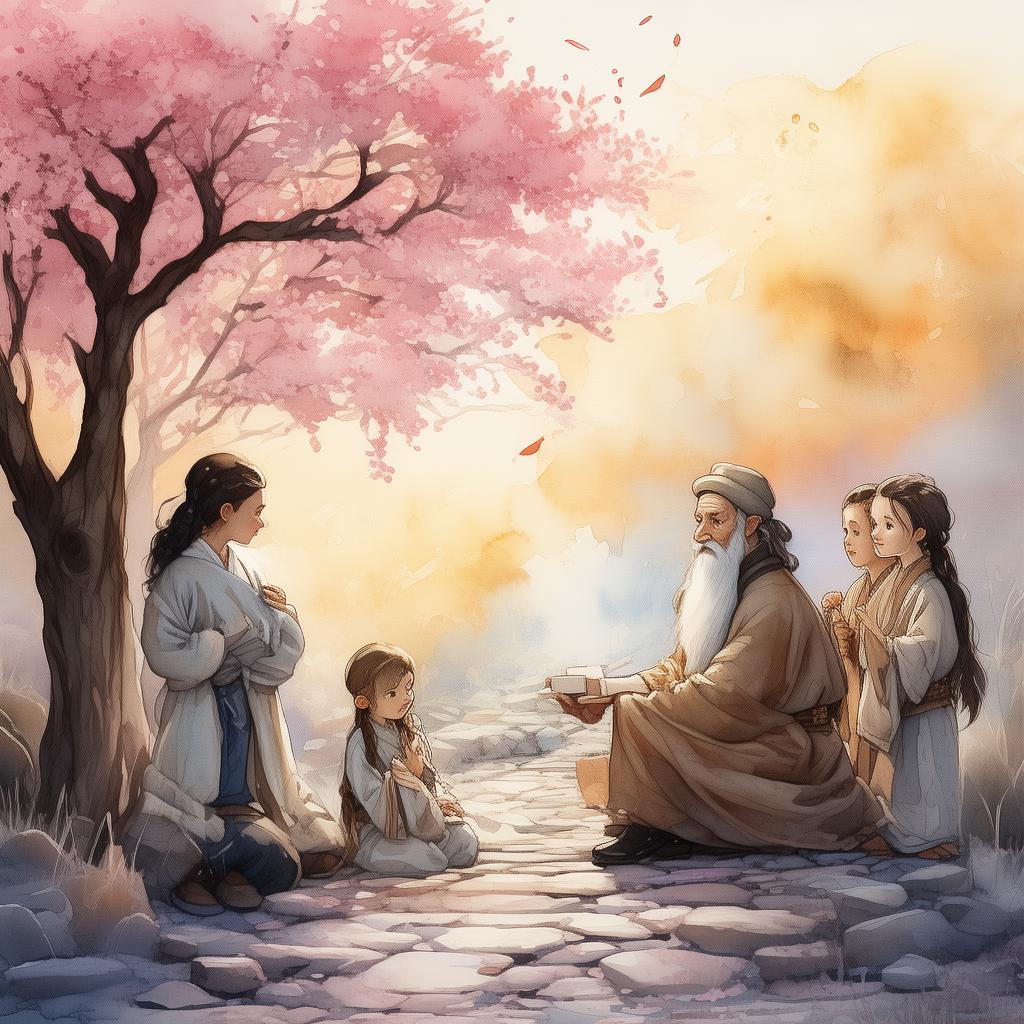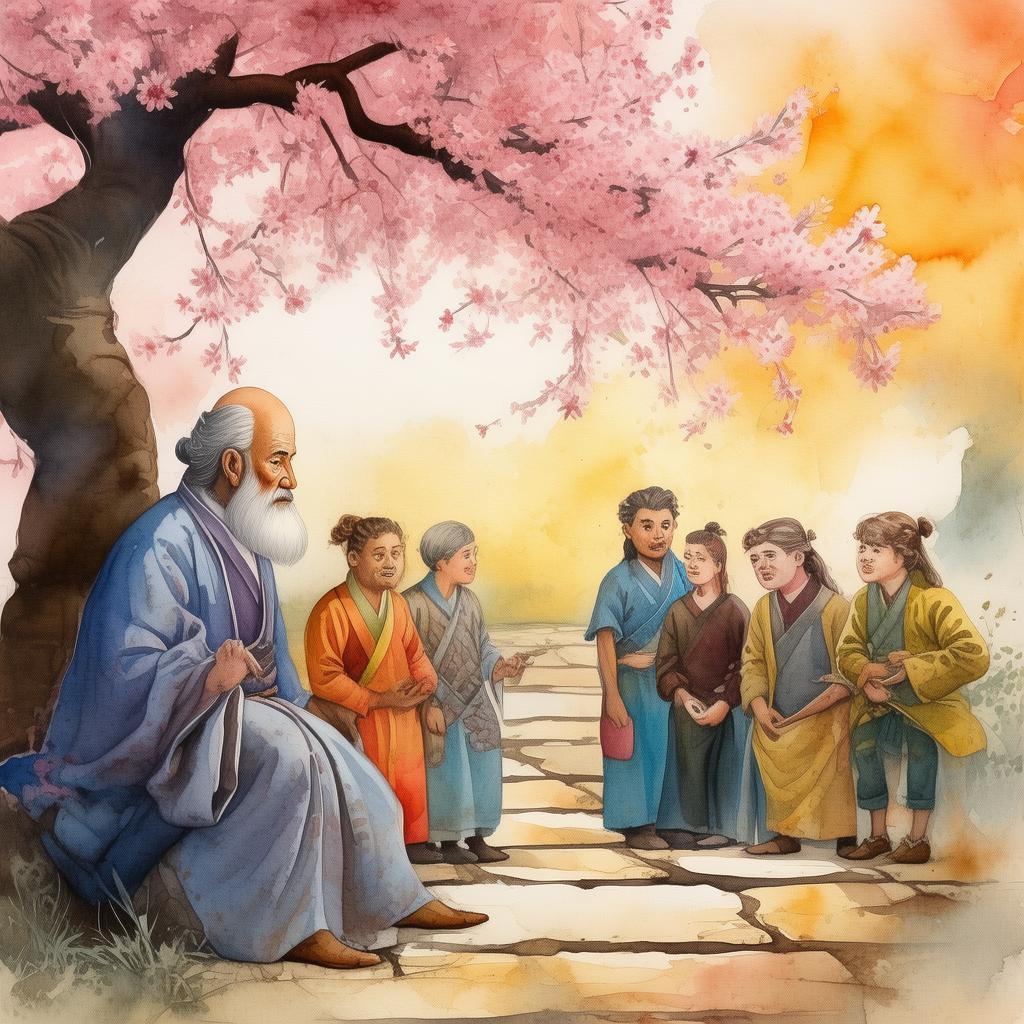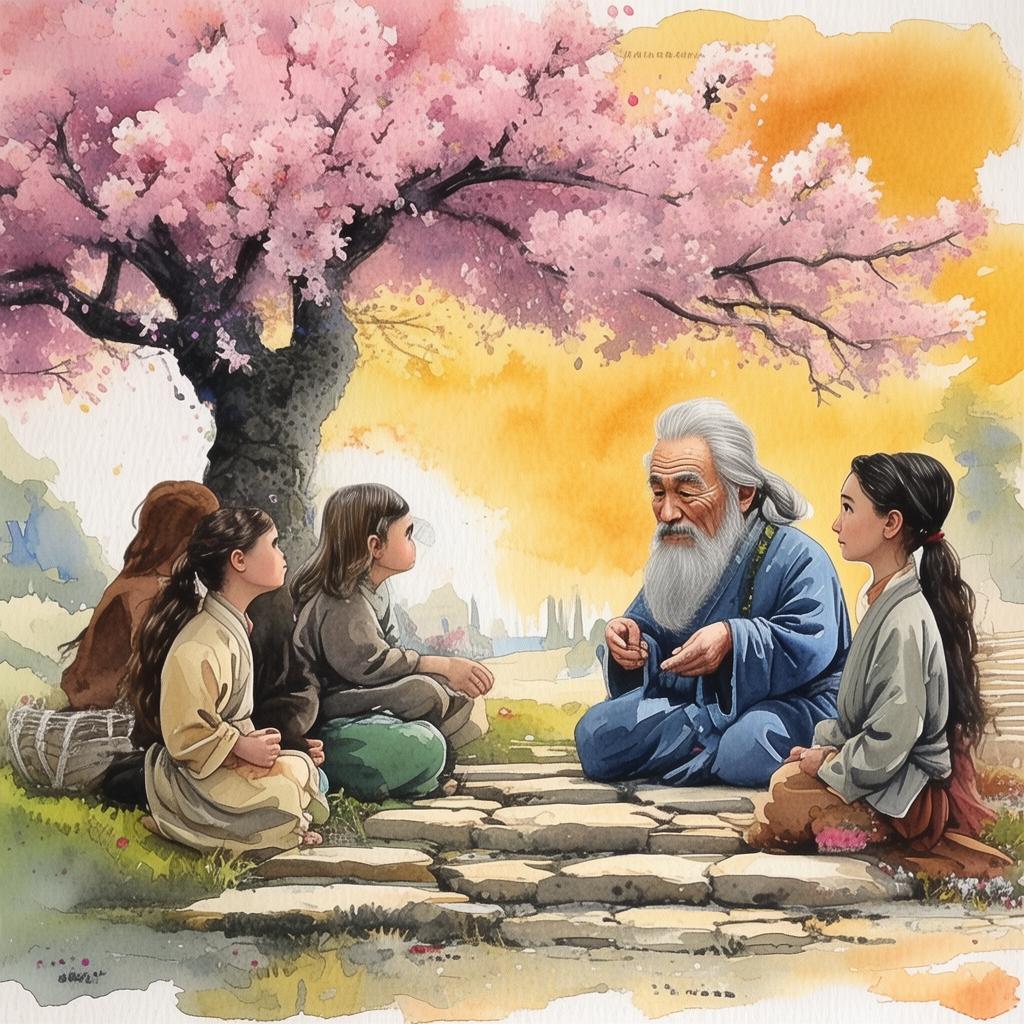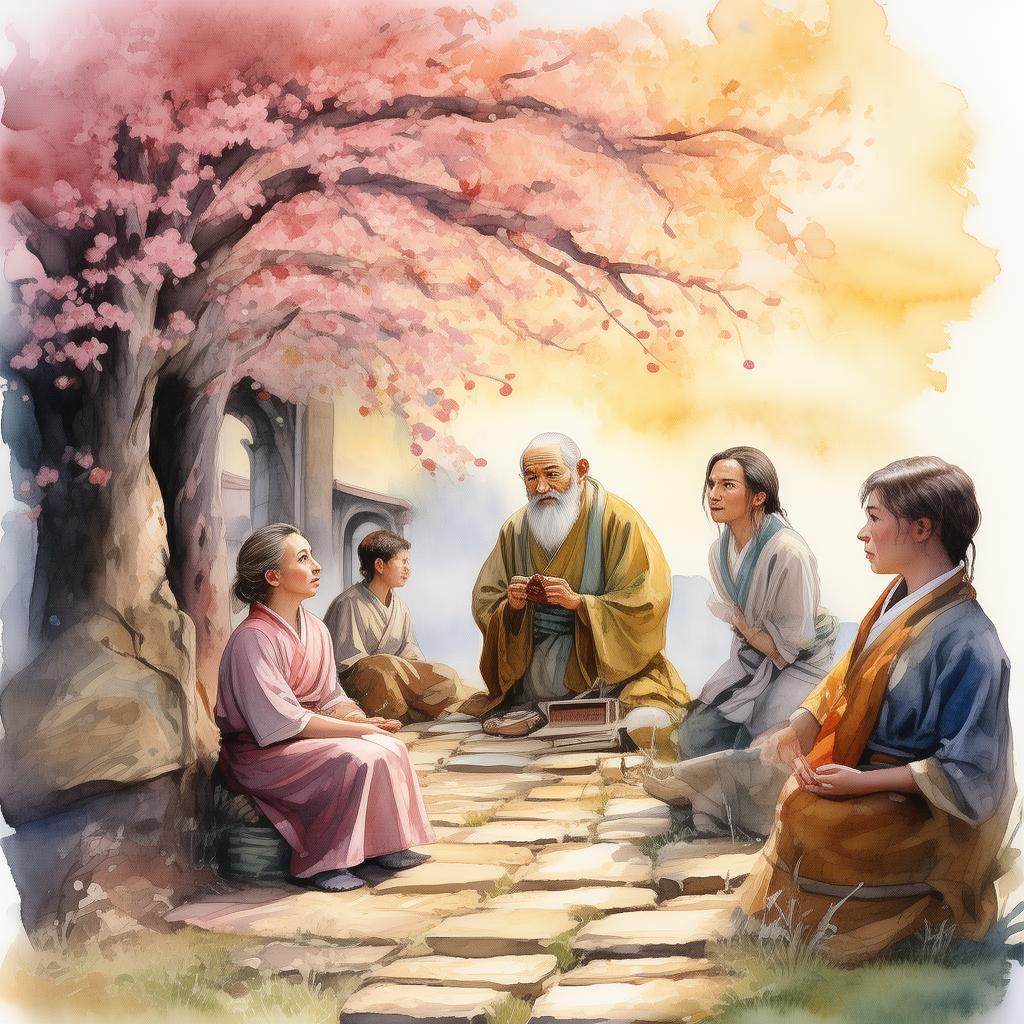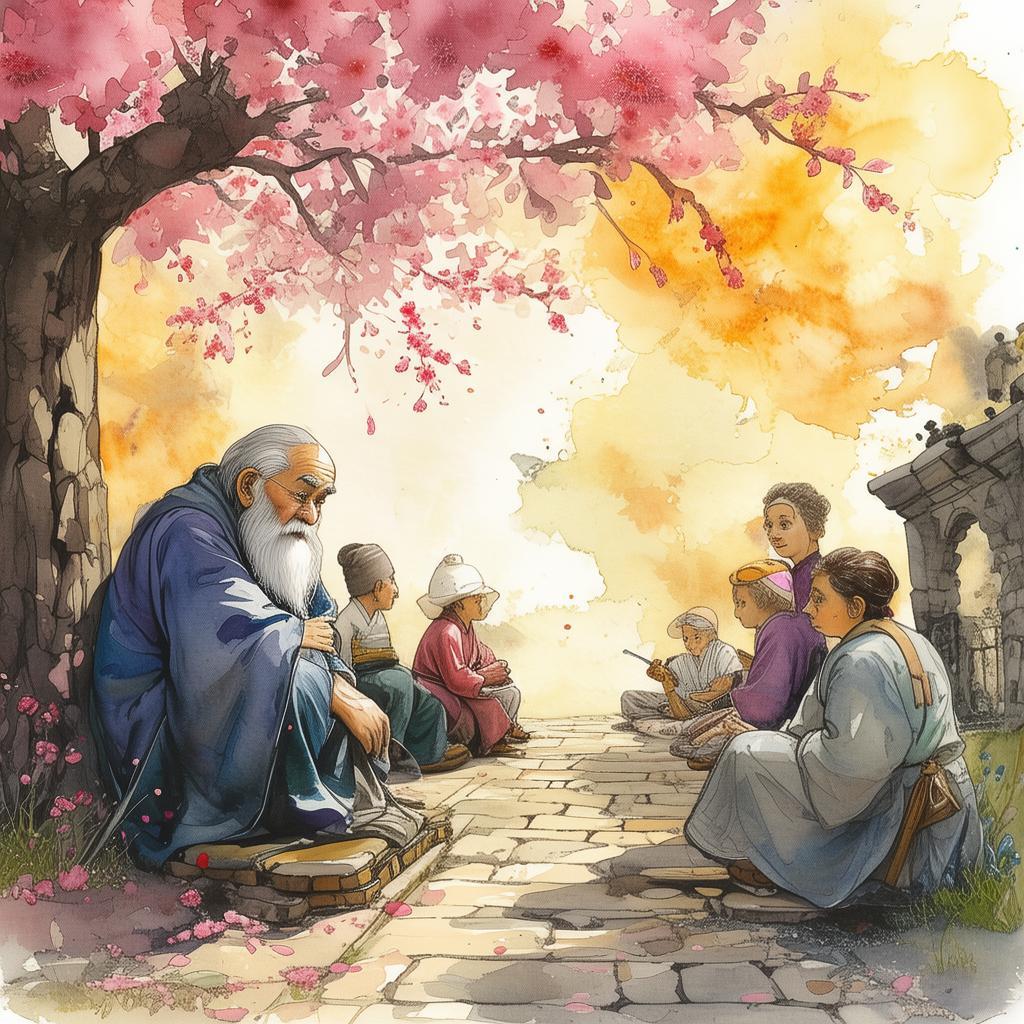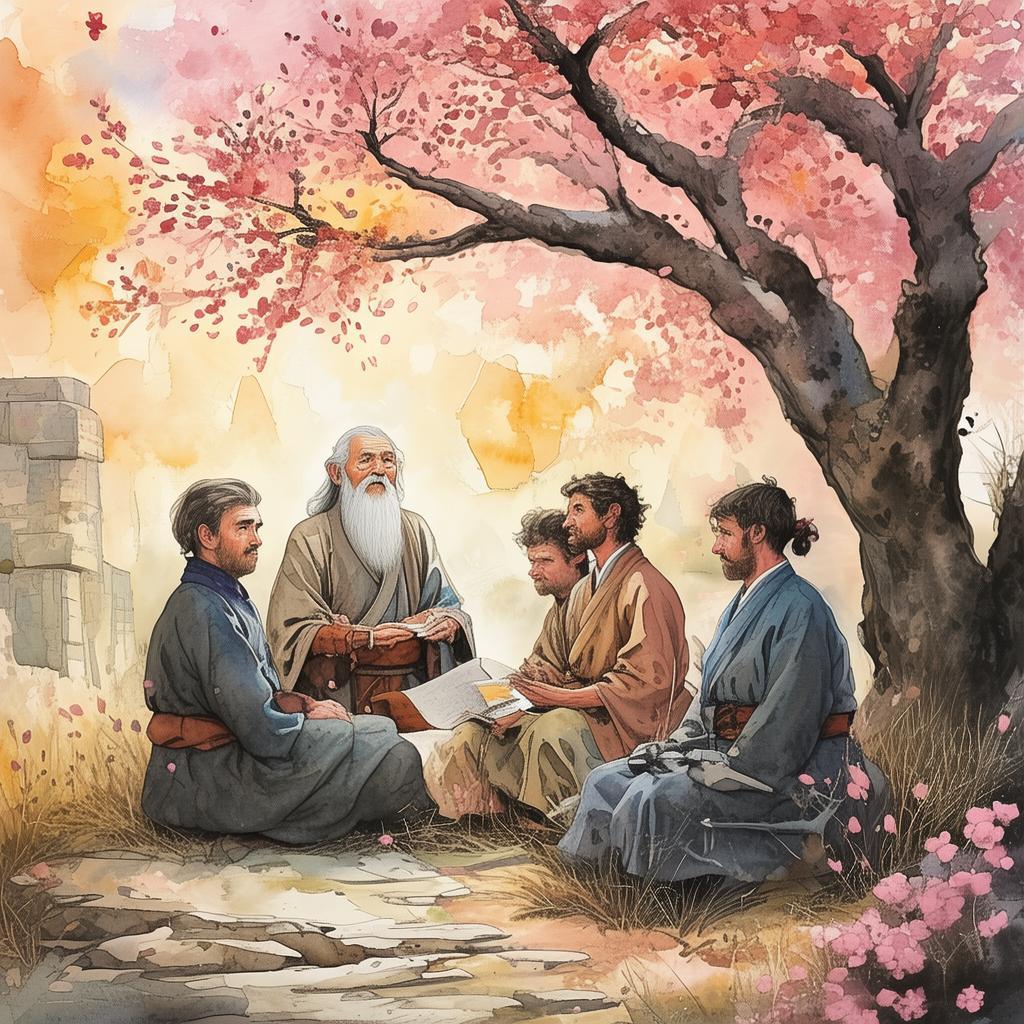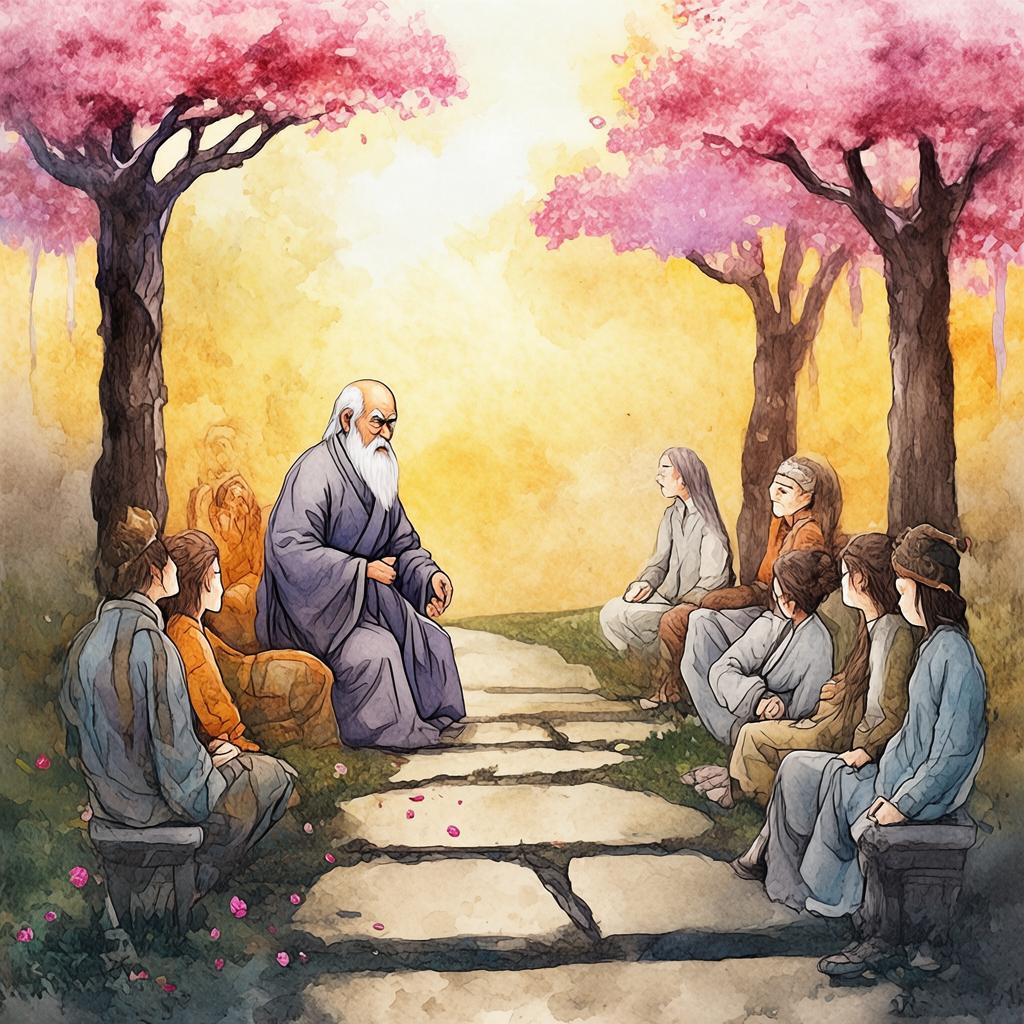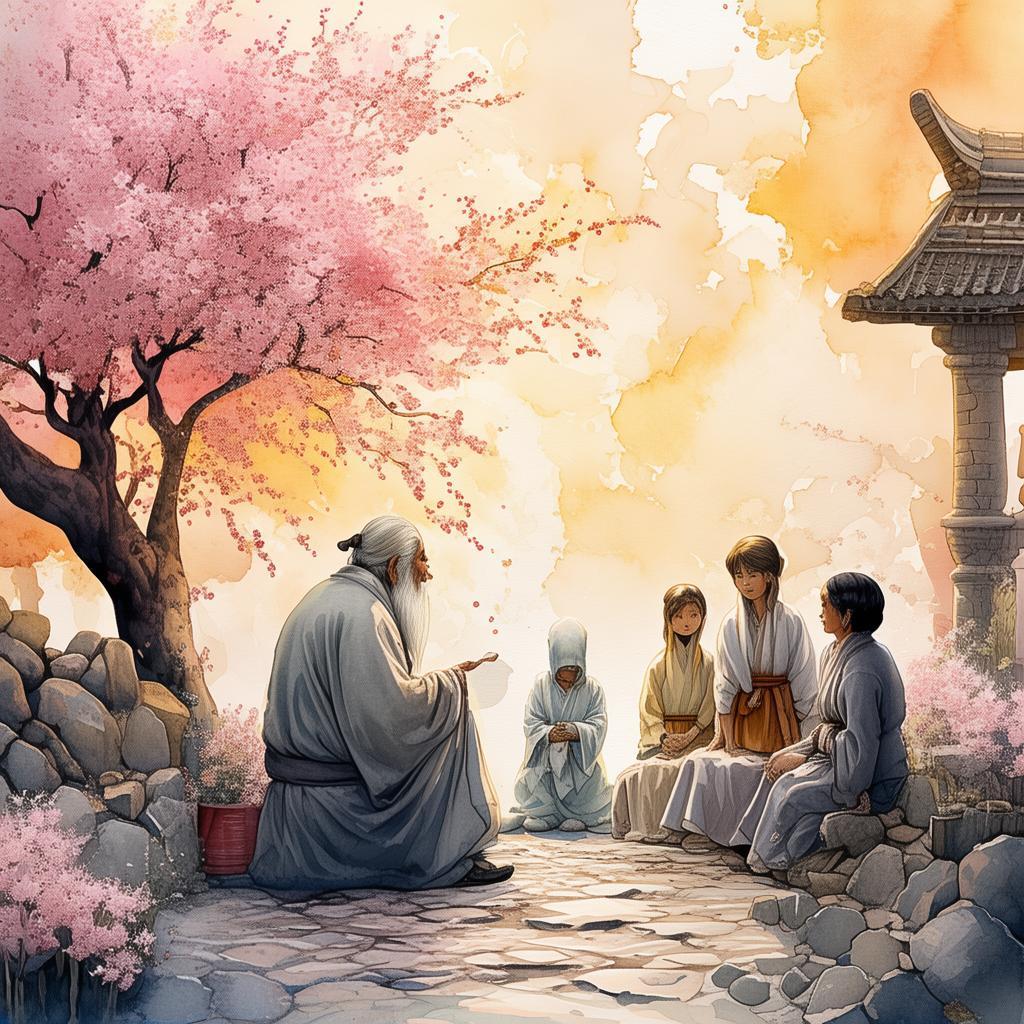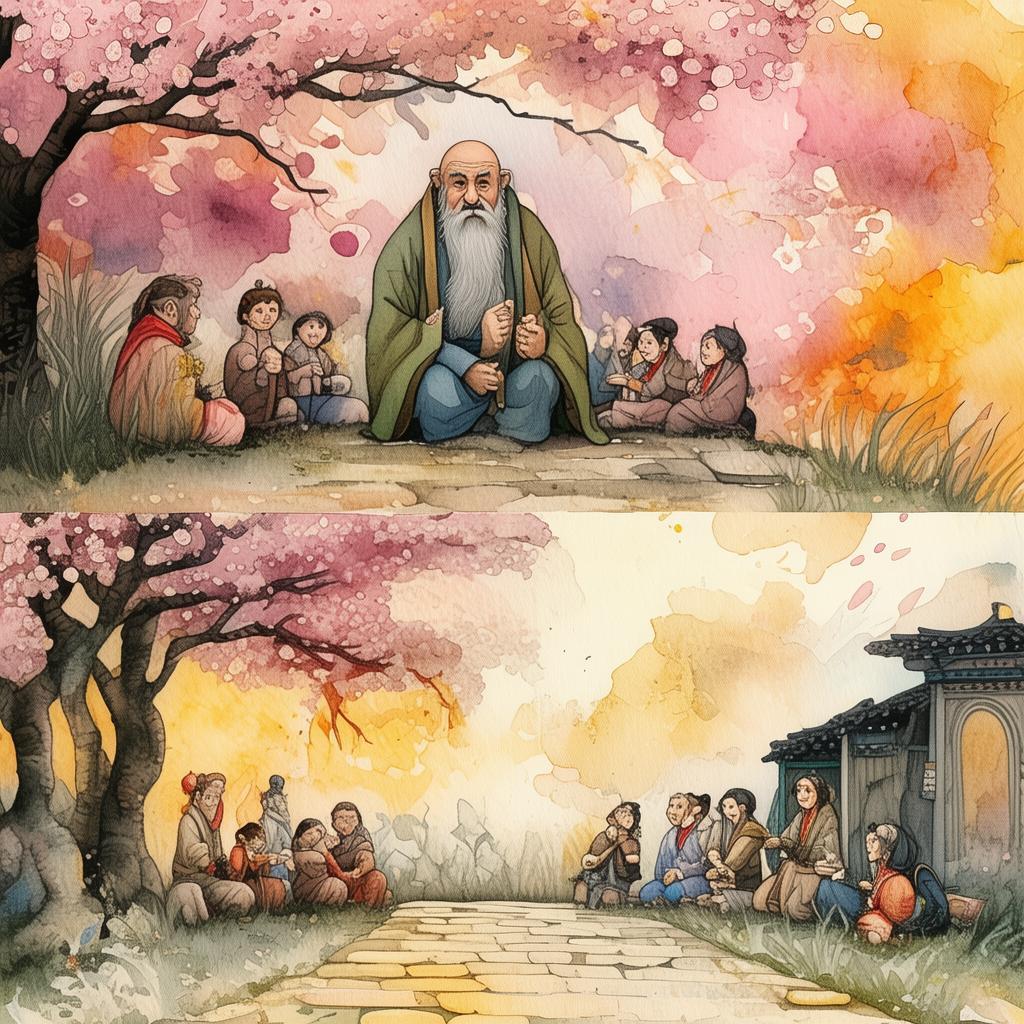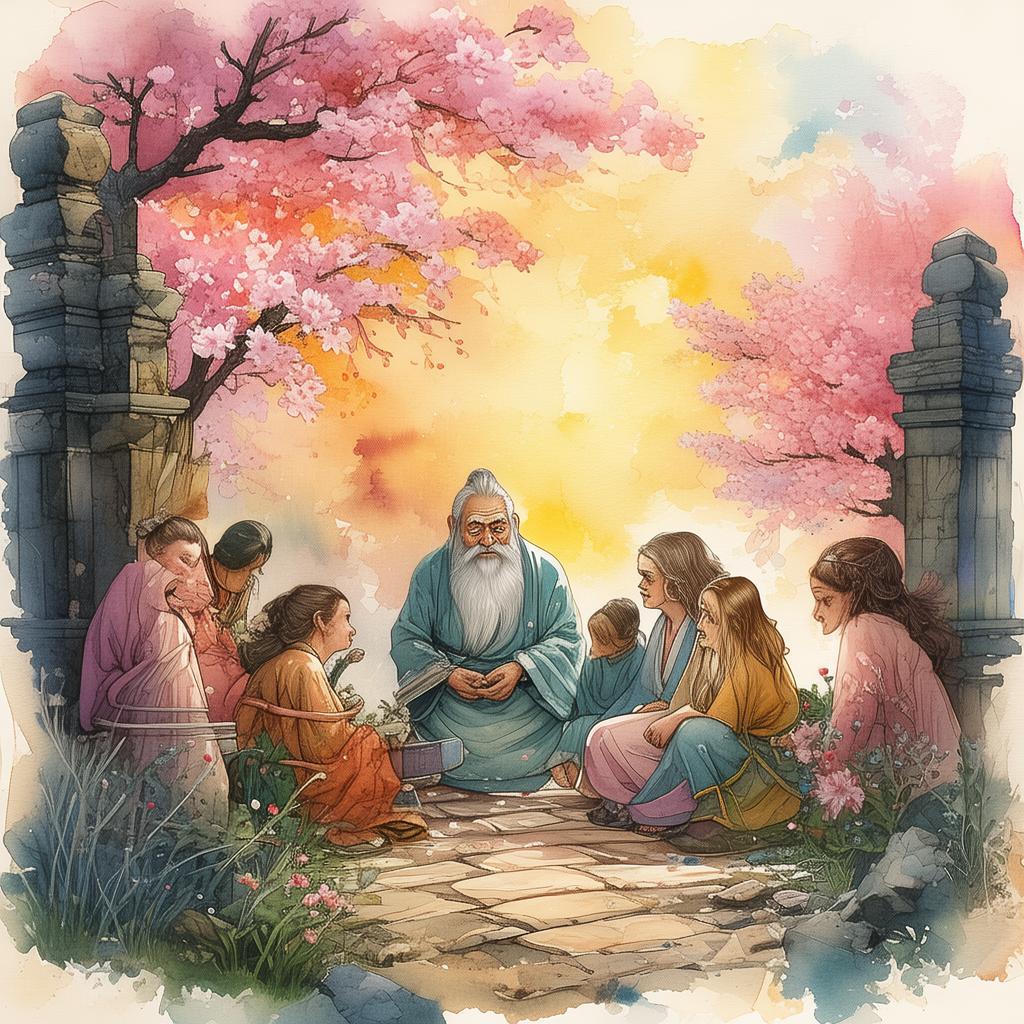Li Bai's Lament: The Bard's Dilemma in Cao Cao's Shadow
In the shadow of the mighty Cao Cao, a time of great upheaval and political intrigue reigned over the ancient land of China. Among the many scholars and artists who lived during this period was Li Bai, a man whose heart was as restless as his spirit. A master of the written word, Li Bai's poetry was a beacon of hope in the midst of darkness, yet his own life was shrouded in the shadows of the powerful and the cunning.
One day, as Li Bai wandered through the bustling streets of Chang'an, he encountered a figure cloaked in mystery. It was Cao Cao himself, the warlord who had consolidated power and was now the de facto ruler of much of the land. Cao Cao, known for his cunning and ruthless nature, sought the poet's talent to reflect his own grandeur and the might of his empire.
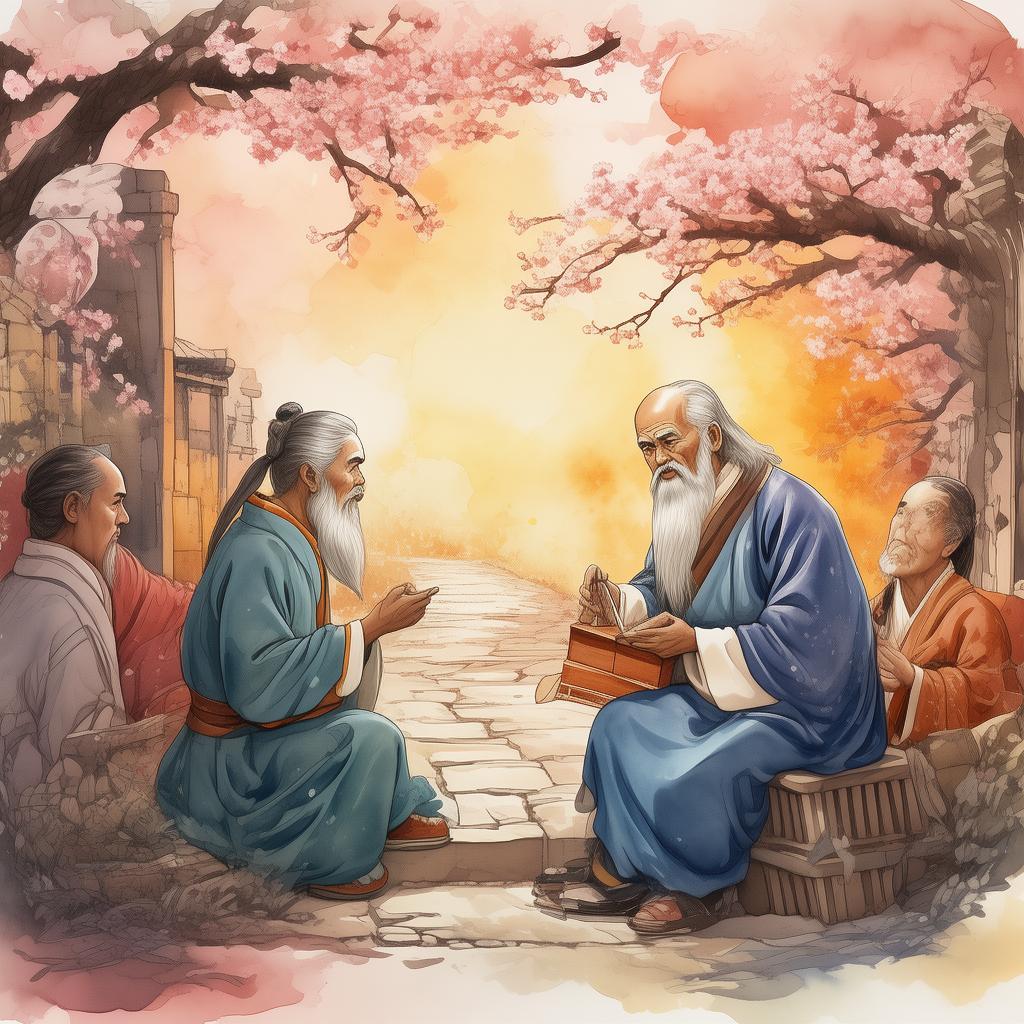
Li Bai, ever the idealist, was torn. On one hand, he admired Cao Cao's ambition and the potential for peace and prosperity his rule could bring. On the other, he feared the cost of aligning himself with such a powerful and unscrupulous figure. It was a dangerous game, and Li Bai knew that the wrong move could mean his life.
In a moment of inspiration, Li Bai proposed a compromise. He would write verses that would glorify Cao Cao's achievements, but only if Cao Cao would promise to protect the arts and the scholars who pursued them. Cao Cao, ever the strategist, agreed, and thus began a complex dance between the poet and the warlord.
Li Bai's first poem, "The Might of the Great," was a masterpiece that captured the essence of Cao Cao's power. It was a testament to the warlord's might, but it also contained subtle hints of the poet's inner turmoil. The people of Chang'an were in awe of the poet's skill, and Cao Cao was pleased with the result.
However, as time went on, Li Bai found himself increasingly disillusioned with the reality of Cao Cao's rule. The warlord's promises of peace and prosperity were replaced by a reign of terror, as he crushed any opposition and sought to consolidate his power at any cost. Li Bai's heart ached as he witnessed the suffering of the people, and he knew that his silence was a betrayal of his own principles.
One evening, as the moon hung low in the sky, Li Bai found himself at the edge of a river, contemplating his next move. He had to choose between loyalty to his patron and loyalty to his own conscience. As he pondered his dilemma, he heard a voice call out to him, "Li Bai, the Bard of the Bloodshed, what will you write next?"
Li Bai turned to see an old friend, a fellow poet who had also fallen under Cao Cao's shadow. The friend, with a knowing smile, handed Li Bai a scroll. It was a collection of verses that spoke of the suffering of the people, of the injustices they endured under the warlord's rule. It was a call to arms, a plea for justice.
Li Bai took a deep breath and knew what he had to do. He would write a poem that would expose the truth, that would reveal the true nature of Cao Cao's rule. It would be a bold move, one that could cost him his life, but he had to stand up for what was right.
As dawn broke, Li Bai began to write. His words flowed like a river, powerful and unyielding. He crafted a poem that would echo through the ages, a testament to the courage of one man who dared to speak truth to power. It was a poem that would become a symbol of resistance, a call to the people to rise up against tyranny.
When the poem was complete, Li Bai presented it to Cao Cao. The warlord, unprepared for such a bold statement, was taken aback. He knew that Li Bai's actions could spell his downfall, but he also recognized the brilliance of the poet's work. In a rare moment of vulnerability, Cao Cao agreed to reconsider his policies, and a fragile peace was restored for a time.
Li Bai's poem, "The Bard's Lament," became a classic, a piece of literature that would be remembered for generations. It was a story of courage, of standing up for what one believed in, even in the face of overwhelming odds. And so, in the shadow of Cao Cao, Li Bai's legacy lived on, a testament to the power of poetry and the indomitable spirit of the human heart.
✨ Original Statement ✨
All articles published on this website (including but not limited to text, images, videos, and other content) are original or authorized for reposting and are protected by relevant laws. Without the explicit written permission of this website, no individual or organization may copy, modify, repost, or use the content for commercial purposes.
If you need to quote or cooperate, please contact this site for authorization. We reserve the right to pursue legal responsibility for any unauthorized use.
Hereby declared.
